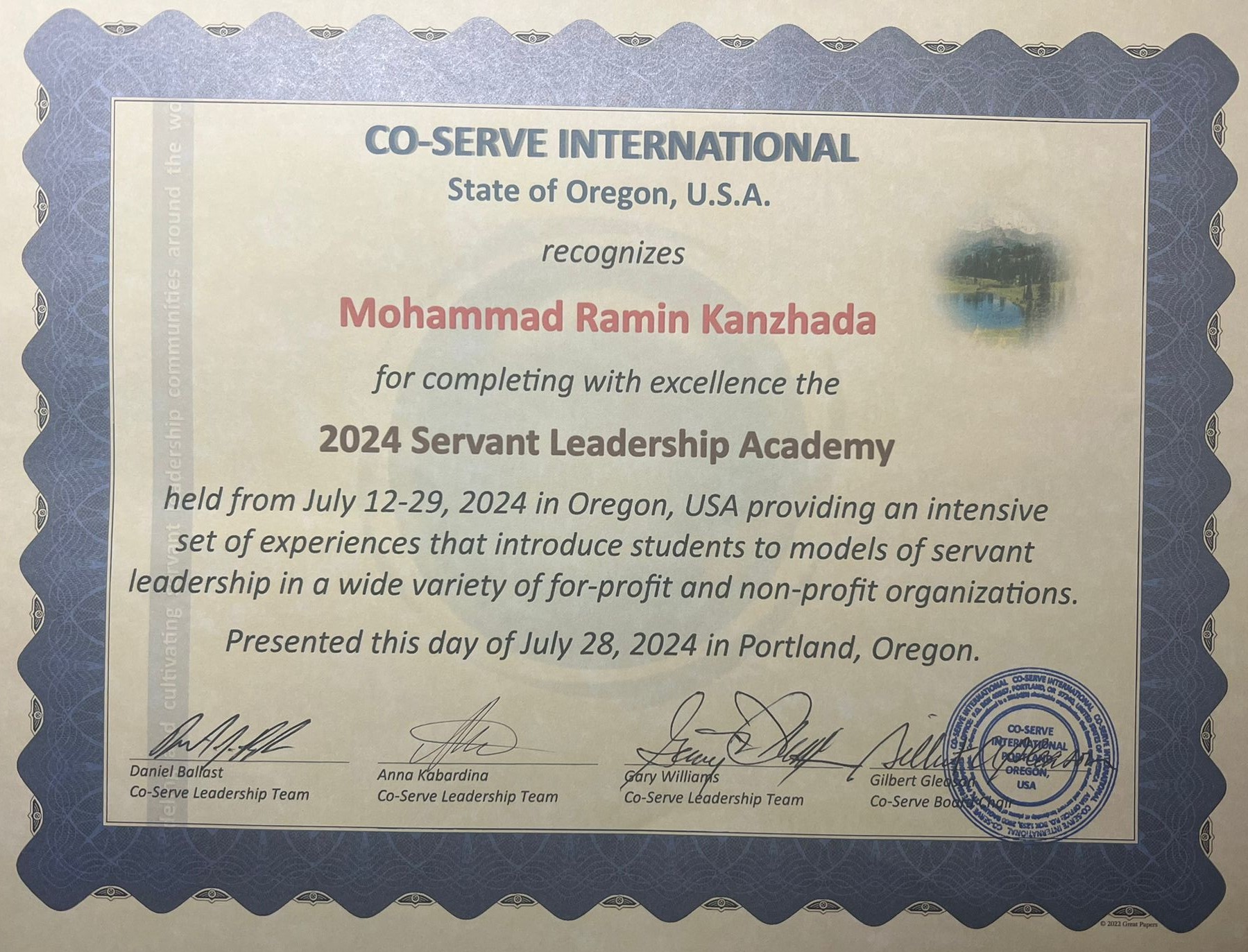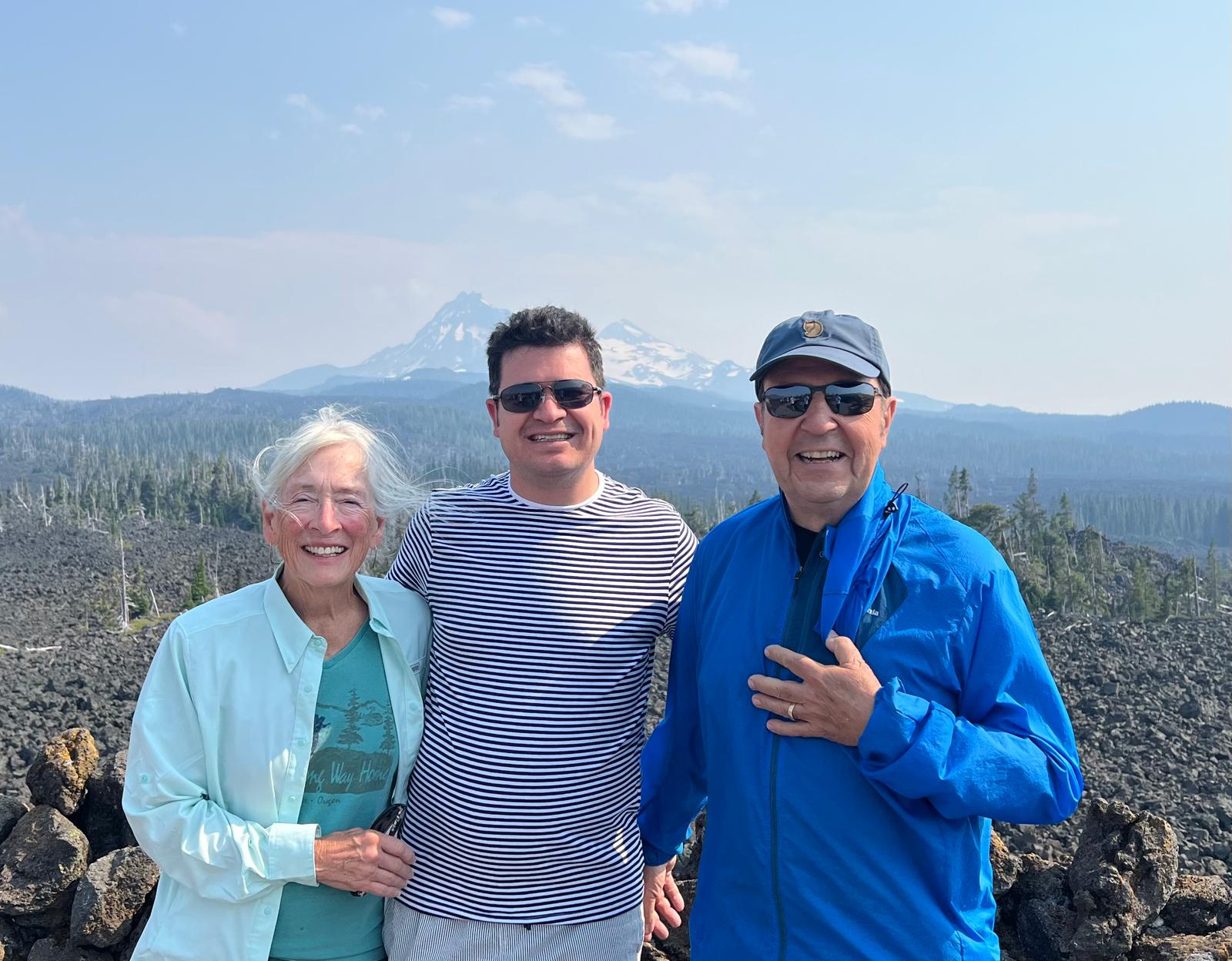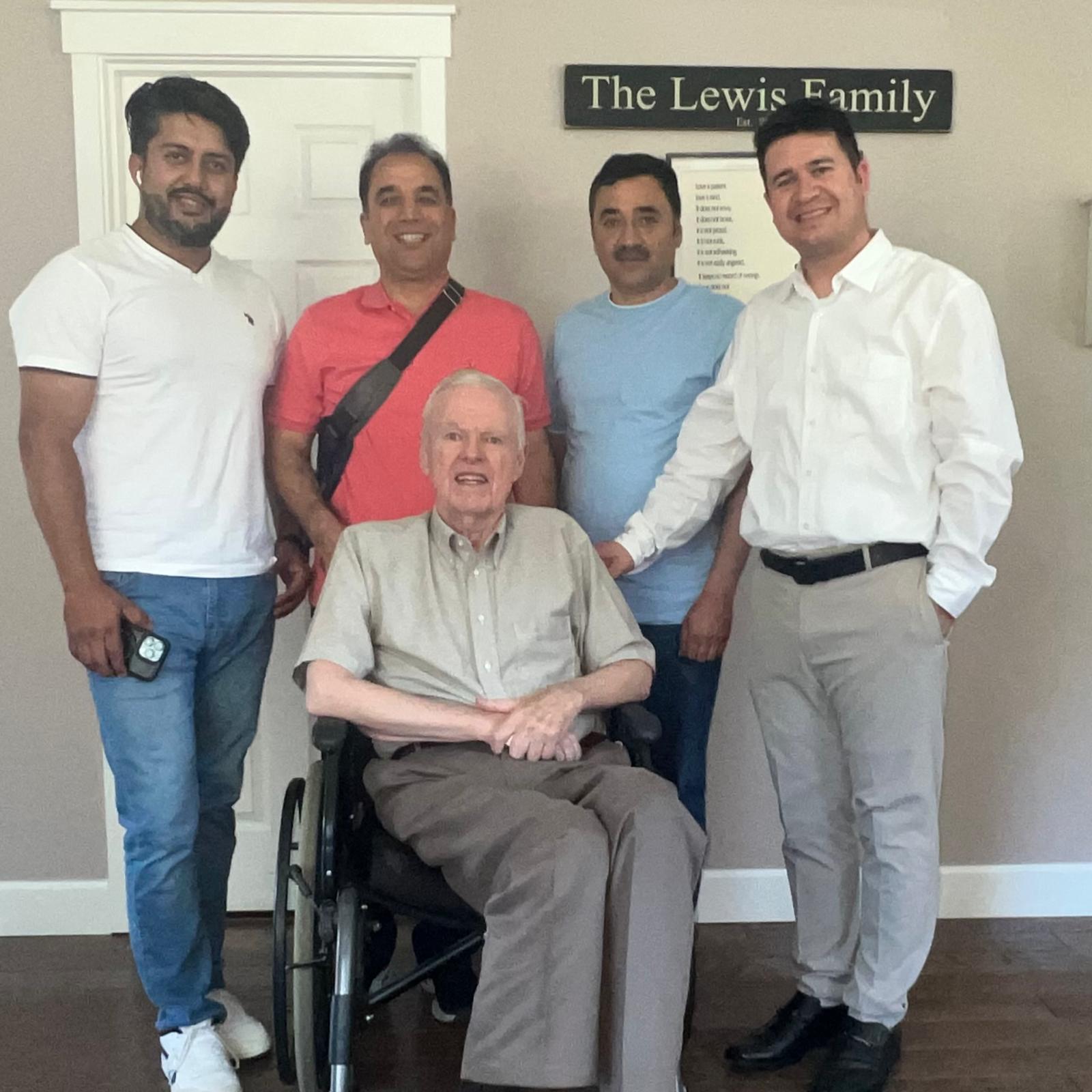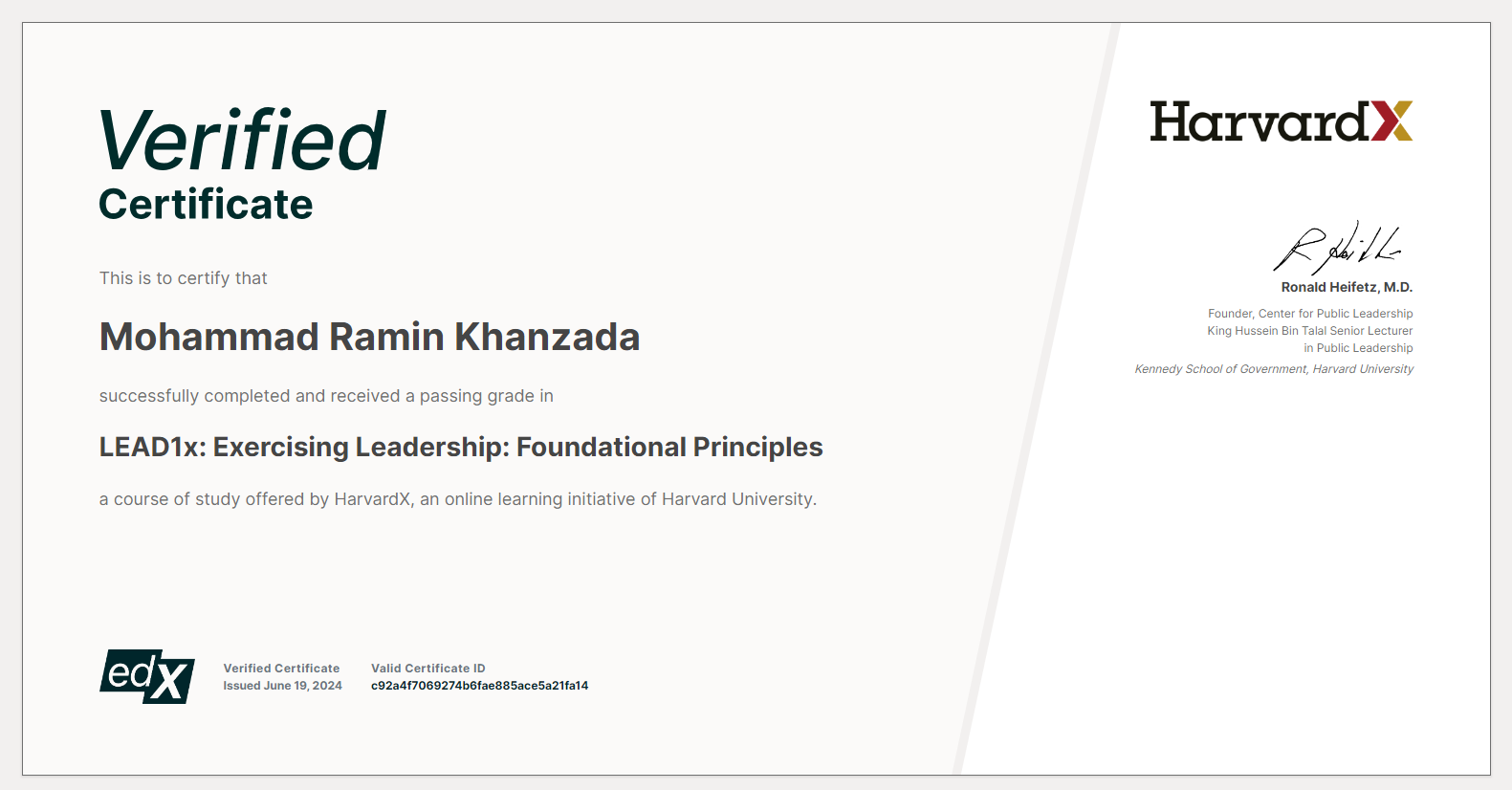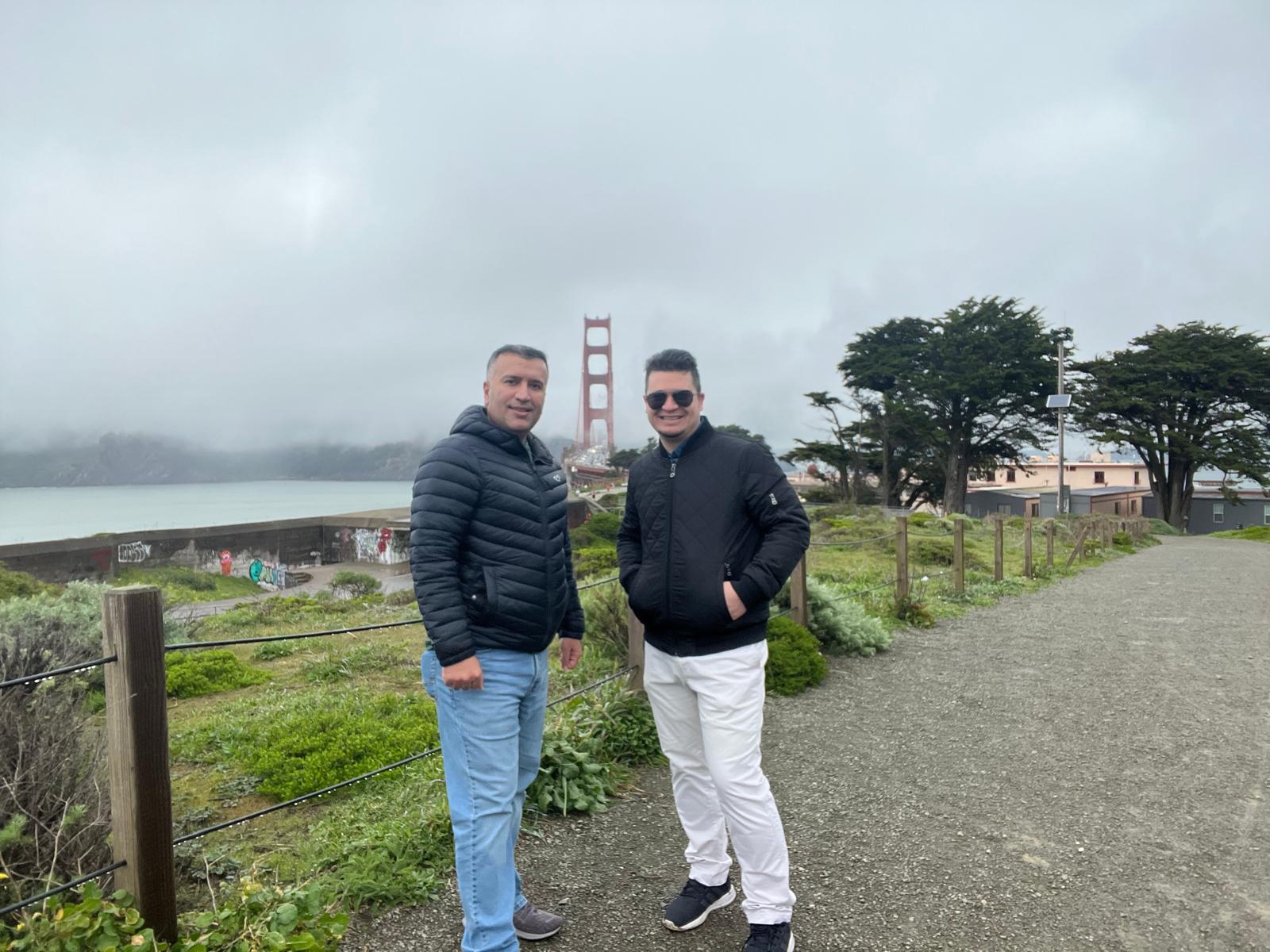Learning is a fundamental aspect of my lifelong journey of growth and discovery, and this year, I had the profound privilege of participating in the 2024 Oregon Servant Leadership Academy. This 17-day program united energetic participants from Kazakhstan, Nigeria, Ukraine, and Afghanistan, offering a comprehensive exploration of servant leadership. We discovered that servant leadership transcends a mere management philosophy; it embodies a deep commitment to understanding and serving others with empathy, integrity, and self-awareness.
Throughout the course, I engaged with remarkable individuals whose actions consistently reflected their words. Their inspiring leadership illuminated the path of servant leadership, demonstrating its critical relevance in both personal and societal contexts. I learned the art of intentional listening and embraced others’ needs and concerns with a non-judgmental attitude.
Our journey in the program involved a thorough exploration of leadership principles and their practical applications. We immersed ourselves in the core principles of servant leadership, focusing on developing the skills and mindset required to lead with empathy and integrity. The program was further enriched by visits to various companies and organizations, where we observed servant leadership in action. These hands-on experiences provided valuable insights into the practical application of these principles and their tangible benefits on organizational culture and team dynamics. Engaging with leaders and employees, we asked insightful questions and observed the impact of servant leadership practices. Each visit was followed by debrief sessions, where we collectively reflected on our observations and insights, fostering a deeper understanding of servant leadership.
Throughout the program, we were graciously hosted by 20 families who provided accommodation, meals, and transportation. Their hospitality greatly enhanced our experience, making our journey both comfortable and enriching.
A significant aspect of the program was the deep self-reflection and understanding it facilitated. We dedicated extensive time to working on our Talent Shields, frameworks designed to help us identify and appreciate our unique strengths and talents. This process involved exploring our personality types through the elements—earth, fire, water, and wind—and recognizing how these traits influence our leadership styles. Through guided activities and introspective exercises, each of us gained valuable insights into our individual missions and core motivations. This self-awareness clarified who we are and how we can leverage our talents to contribute meaningfully to our teams and organizations, aligning our personal values with our professional goals for a more authentic and purpose-driven approach to leadership.
During this period, I had the pleasure of meeting numerous families, with special gratitude for two exceptionally kind families who welcomed me as one of their own. Their hospitality and shared experiences provided life lessons that have significantly shaped my personal growth.
The program also offered an excellent opportunity to connect with exceptional individuals. I had the pleasure of meeting kind and sociable students from Kazakhstan, whose warmth and friendliness enriched the experience. Elisha, a very nice and lovely person, made a memorable impact with his kindness. Additionally, Elina from Ukraine, characterized by her emotional, energetic, and strong personality, brought a unique and uplifting spirit to our group.
I extend my deepest gratitude to the distinguished instructors who made this program extraordinary. Special thanks go to Mr. Marshall, the visionary founder of the Co-Serve program, whose leadership and dedication were truly inspiring. A special acknowledgment is also due to Mr. Daniel Ballast, a paragon of servant leadership. Having previously taught us in Herat-ILD, Mr. Ballast’s return as an instructor was a profound honor. His teachings, rooted in deep empathy and practical wisdom, provided a transformative learning experience. Mr. Ballast’s commitment to servant leadership and his ability to convey complex concepts with clarity and passion significantly enriched our understanding and application of these principles, illuminating the path to leading with integrity and compassion.
I am equally grateful to Anya Kabardina Volf, the exceptional program coordinator from Kazakh American Free University. Anya’s dedication and organizational acumen were pivotal in ensuring the smooth execution of the program. Her meticulous attention to detail, combined with her warm and approachable demeanor, created an environment where learning and personal growth flourished.
I am also deeply thankful for the invaluable contributions of Mr. Gilbert Gleason, a passionate servant leader and esteemed author. Mr. Gleason’s extensive knowledge and unwavering dedication to the principles of servant leadership significantly enriched our program. Reconnecting with Mr. Gary Williams, who had previously taught us in Afghanistan in 2010, was particularly meaningful. His authenticity and genuine concern for others have been instrumental in shaping our understanding of servant leadership principles. His ability to inspire and motivate through example, combined with his profound knowledge and experience, provided us with invaluable lessons on leading with compassion, responsibility, and integrity.
Additionally, we were honored by the presence of Ms. Marilyn and Mr. Terry, a gracious couple who traveled from another state to contribute their time and expertise. Their participation was a highlight of the program, bringing fresh perspectives and a wealth of knowledge that greatly enhanced our learning experience. The support from Mr. Jonathan Martin and his wife was equally invaluable, providing additional depth and enrichment to the program.
Ms. Ronnie McKay, who traveled from Colorado, shared profound insights that further elevated the quality of our discussions and understanding. Her contributions added significant value and were deeply appreciated by all participants.
Moreover, I would like to express my sincere gratitude to Dan Barry, whose exceptional skills in capturing videos and photographs, as well as conducting interviews, documented our journey with remarkable professionalism. His efforts not only preserved our memories but also provided a visual narrative that beautifully encapsulated the essence of our program.
Throughout this program, the instructors and facilitators planted profound seeds of love, hope, courage, and humanity within us. These values are not mere abstract ideals but foundational principles that are crucial to transformative and compassionate leadership. The deep focus on love and hope has been particularly impactful. Love, in this context, signifies a genuine care for others and a commitment to their well-being, while hope represents the belief in positive change and the potential for growth and improvement. By instilling these values, the program has inspired us to lead with heartfelt compassion and a vision for a better future.
We have learned to approach leadership with an open heart, fostering environments where love and hope can thrive. This nurturing has empowered us to uplift those around us, instill confidence in their abilities, and drive collective progress. The emphasis on these principles has not only reshaped our leadership approach but has also equipped us to inspire and enact positive change in our communities and organizations. By integrating love and hope into our leadership practices, we are committed to creating a more empathetic and hopeful world, where every action is guided by the profound belief in the potential for goodness and transformation.
Moreover, it was a privilege to reconnect with long-time friend Mr. Abdul Aziz Samam and to forge new friendships with Afghan colleagues, Mr. Rafi and Mr. Kamwar. Their camaraderie and support significantly enhanced the depth and value of this program.
The principled and scholarly approach of the program offered practical insights into embodying servant leadership principles. We learned from organizations that have thrived for over fifty years, and their success is deeply rooted in a commitment to human values and resources.
In conclusion, I extend my heartfelt appreciation to the Co-Serve leadership team for orchestrating this transformative experience. I encourage the continuation and expansion of such programs around the world, as they play a crucial role in fostering positive change and growth. Servant leadership is more essential than ever in our world, offering a guiding light and a model for leading with compassion, purpose, and unwavering dedication to the well-being of others.
